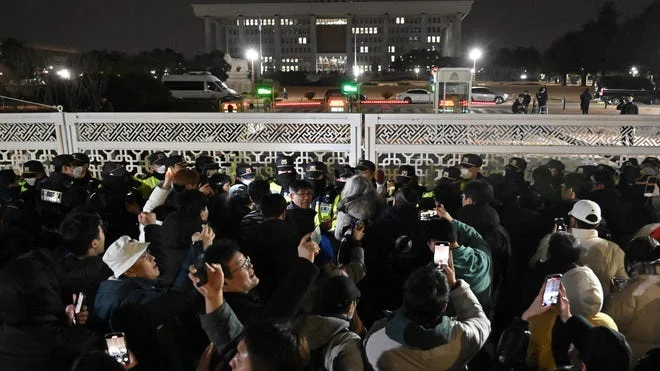
What Could Happen If Trump Declares Martial Law? Unpacking the Implications
As the clock ticks down to April 20, the question on many minds is whether President Donald Trump will invoke the Insurrection Act and declare martial law. This action, unprecedented since the Civil War, could fundamentally alter the landscape of American governance and citizen rights.
On January 20, Trump signed an executive order concerning a national emergency at the U.S.-Mexico border. This order tasked the secretaries of Defense and Homeland Security with preparing a report that may recommend invoking the Insurrection Act, a legal framework allowing for military intervention under specific circumstances. Critics argue that this course of action could lead to the military taking on a law enforcement role, a potential erosion of civil liberties.
The Insurrection Act, established in 1807, permits the president to deploy military forces domestically to suppress rebellion or enforce federal law. However, a delicate balance exists; the Posse Comitatus Act restricts military involvement in civilian law enforcement. Trump’s administration has already expanded military use domestically, including recent directives for the Defense Department to control certain civilian lands, raising alarm among civil liberties advocates.
According to a report by the American Civil Liberties Union (ACLU), any military action against domestic civil disturbances, such as mass deportations, would not only be unnecessary but could also be catastrophic. They point out the very real implications of military members operating in civilian contexts, given that military training does not encompass civil rights enforcement or community policing.
The potential ramifications of a martial law declaration are multifaceted. Imagine a scenario where peaceful protests erupt in response to militarized action at the border. In such a case, the president could federalize the National Guard and authorize deadly force under military rules of engagement, leading to tragedies reminiscent of past civil rights confrontations.
Moreover, the scenario could lead to significant unrest within the military itself. A previous note from retired military leaders highlights that troops take an oath to the Constitution and not to any individual leader. If faced with unlawful orders, military leaders could refuse to comply, leading to a constitutional crisis.
The timeline leading to April 20 is crucial. While some speculate that the threat of martial law will serve solely as a political tool, the reality is that preparing for such an event requires serious consideration and public dialogue about the implications for democracy and governance in America.
As we approach this pivotal moment, one must ask: How do we protect civil order without infringing upon liberties? The tension between national security and personal freedoms is at a crossroads. Open dialogue, accountability, and oversight during any military deployment are essential to ensure that the foundational principles of American democracy remain intact.
What are your thoughts on the implications of potential martial law? Should the military be involved in domestic issues? Share your opinions and let’s discuss the future of civil liberties in the context of national security.